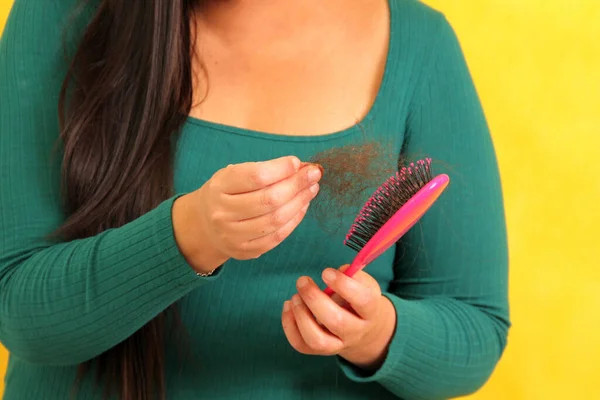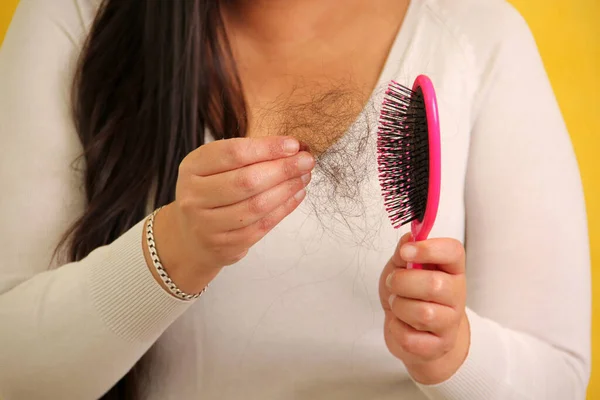- Why Diabetes Causes Hair Loss-Doctors? Diabetes can cause hair loss by disrupting blood flow, triggering autoimmune reactions, and increasing stress on the body.
- The risk of hair loss increases with longer duration and poorer control of diabetes.
- A balanced, nutrient-rich diet and good diabetes management are the best natural defenses against hair loss.
- Early intervention and professional advice can make a significant difference in both hair health and overall well-being.
Hair loss can be distressing, especially when it seems to come out of nowhere. For people living with diabetes, this concern is not uncommon. While not everyone with diabetes will experience hair loss, mounting evidence suggests a significant connection between the two conditions. Understanding why this happens and what can be done about it is crucial for anyone managing diabetes or concerned about unexplained hair thinning.

How Diabetes Can Cause Hair Loss: The Science Behind the Link
Board-certified dermatologist Dr. Pooja H. Rambhia, MD, explains that diabetes can disrupt the normal hair growth cycle in several ways. Normally, hair grows in a repeating cycle of growth, rest, and shedding. However, diabetes can interrupt this process, causing more hair to enter the shedding phase and less to regrow, resulting in noticeable thinning or even bald patches.
Why Does This Happen?
Several mechanisms are at play:
- Poor Blood Flow: Diabetes can damage small blood vessels, impairing blood flow to the scalp and hair follicles. Without sufficient oxygen and nutrients, follicles may become weak, leading to brittle hair and slower regrowth.
- Immune System Effects: People with type 1 diabetes are at higher risk for autoimmune conditions like alopecia areata, where the immune system attacks hair follicles, causing patchy hair loss on the scalp and body.
- Stress and Hormonal Imbalances: The daily stress of managing a chronic illness, along with diabetes-related hormonal changes, can push more hair follicles into the resting phase, increasing shedding.
- Medication Side Effects: Some diabetes medications may contribute to hair loss as a side effect, though this is less common.
Anecdotally, many patients notice that their hair loss improves when their blood sugar levels are better controlled, highlighting the importance of consistent diabetes management.
Who’s at Risk? What the Research Shows
Not everyone with diabetes will lose hair, but certain groups face higher risks. A study involving 5,389 women found that those with type 2 diabetes for over ten years had more than double the risk of severe scalp hair loss compared to women without diabetes. Another study of 100 men revealed that those with genetic male pattern baldness were more likely to have insulin resistance, a hallmark of type 2 diabetes. Furthermore, the severity of autoimmune hair loss (alopecia areata) often mirrors the degree of insulin resistance in affected individuals.
These findings underscore that the longer someone has diabetes, and the less controlled their blood sugar, the greater the likelihood of experiencing hair loss.
Other Sneaky Culprits
While diabetes itself can contribute to hair loss, several related factors may also play a role:
- Thyroid Disorders: Common in people with diabetes, thyroid disease can independently cause hair thinning or loss.
- Nutritional Deficiencies: Poor diet or malabsorption can lead to deficiencies in iron, zinc, and other nutrients needed for healthy hair.
- Chronic Stress: Living with diabetes can be stressful, and chronic stress is a well-known trigger for temporary hair loss (telogen effluvium).
How to Prevent Diabetes Hair Loss Naturally: Expert Advice from Erin Palinski-Wade, RD, CDCES, LDN, CPT
Dietitian and nutrition consultant Erin Palinski-Wade, author of the 2-Day Diabetes Diet, emphasizes that natural prevention starts with optimal blood sugar management and a nutrient-rich diet. According to her, stabilizing blood glucose levels reduces the risk of vascular damage and hormonal imbalances that can hamper hair growth.

She recommends the following strategies:
- Eat a Balanced Diet: Focus on whole grains, lean proteins, healthy fats (like those from nuts and avocados), and plenty of fruits and vegetables. These foods provide essential vitamins and minerals for hair health.
- Prioritize Protein: Hair is made mostly of protein, so ensure each meal contains a good source, such as eggs, fish, or legumes.
- Include Iron and Zinc: These minerals are vital for hair growth. Add leafy greens, beans, and seeds to your meals.
- Stay Hydrated: Proper hydration supports healthy circulation and nutrient delivery to hair follicles.
- Manage Stress: Incorporate relaxation techniques such as yoga, meditation, or regular exercise to keep stress hormones in check.
- Monitor Thyroid Function: Regular checkups can help catch and treat thyroid issues early, reducing their impact on hair.
If you notice sudden or severe hair loss, consult your healthcare provider. Sometimes, adjusting your diabetes medications, improving your diet, or addressing underlying conditions can help restore hair growth.
Frequently Asked Questions
Q: Can hair loss from diabetes be reversed?
A: In many cases, yes. Once blood sugar levels are better controlled, people often see a reduction in hair loss and even regrowth of lost hair. However, if hair loss is due to autoimmune conditions or severe vascular damage, regrowth may be slower or incomplete.
Q: Is hair loss from diabetes only on the scalp?
A: No. Diabetes-related hair loss can affect not just the scalp but also the arms, legs, and other parts of the body. Loss of hair from limbs may indicate poor blood flow and should be discussed with a doctor.
Q: What are the best remedies for diabetes hair loss?
A: Besides optimizing blood sugar and nutrition, gentle hair care is crucial. Avoid harsh chemicals, minimize heat styling, and use mild shampoos. Some people benefit from topical treatments like minoxidil, but these should be used under medical supervision.
If you or someone you know is experiencing unexplained hair loss and has diabetes, don’t ignore it. Addressing the underlying causes can not only restore confidence but also signal improvements in overall health.
Also Read | Feeling Sore After Running? Try These 7 Stretches for Instant Relief and Flexibility










